Interprofessional Collaboration: A Nursing Leadership Perspective
VerifiedAdded on 2023/01/23
|11
|992
|24
Report
AI Summary
This report delves into the crucial role of nursing leadership in fostering interprofessional collaboration within healthcare settings. It emphasizes how effective leadership can improve patient care by promoting teamwork among various healthcare professionals. The report highlights the importance of shared goals, mutual trust, clear roles, effective communication, and measurable outcomes as key components for successful interprofessional relationships. It analyzes potential strategies for enhancing nursing leadership skills, such as improving communication, active involvement in decision-making, continuous learning, and ongoing monitoring. The report draws on various research articles to support its findings, underscoring the significant impact of leadership on interprofessional collaboration and the resulting benefits for patient outcomes. The conclusion reinforces the importance of nursing leadership in acute healthcare settings and the attributes that contribute to effective leadership, such as enhanced communication, engagement, continuous learning, and monitoring.
1 out of 11
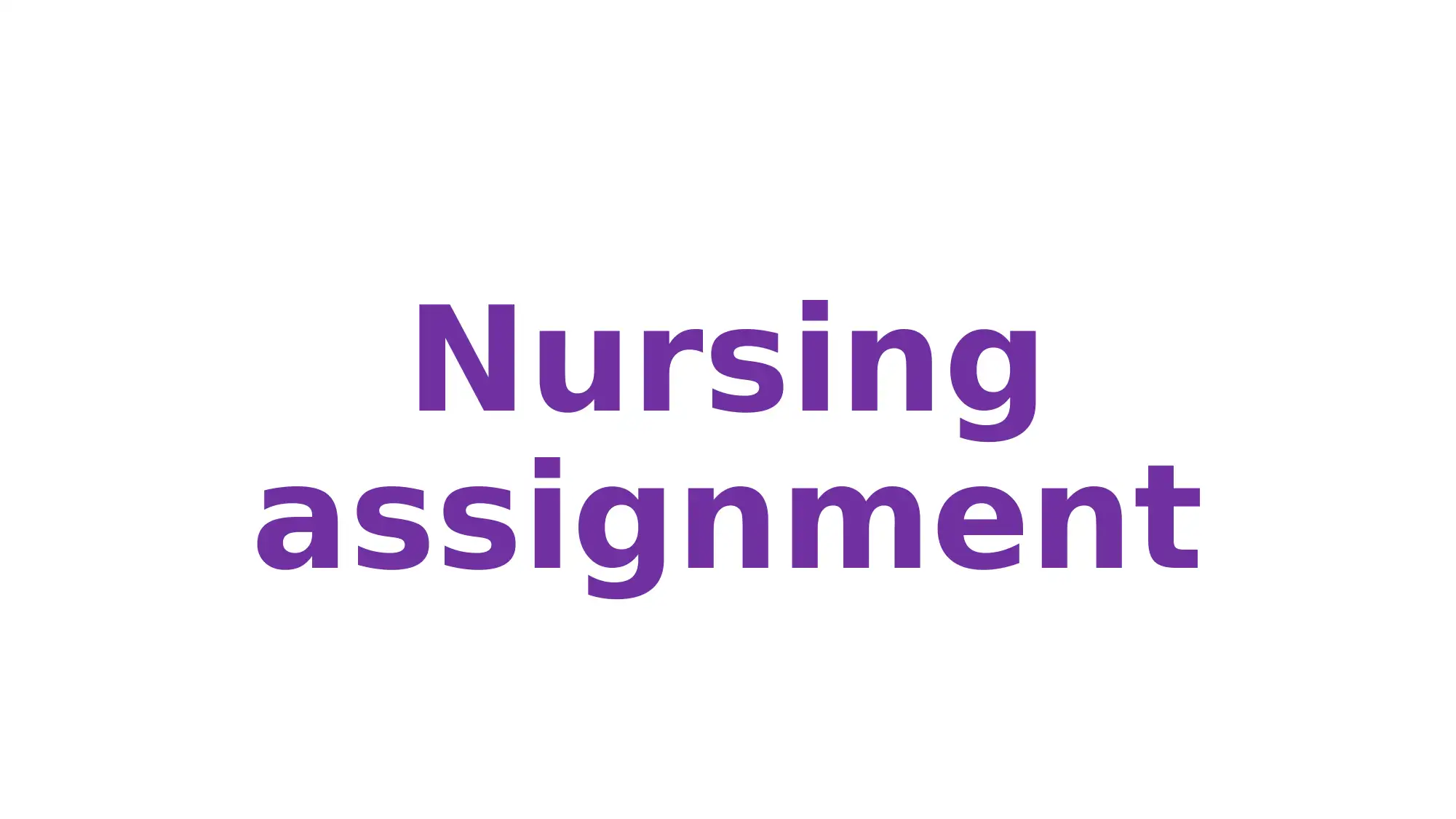
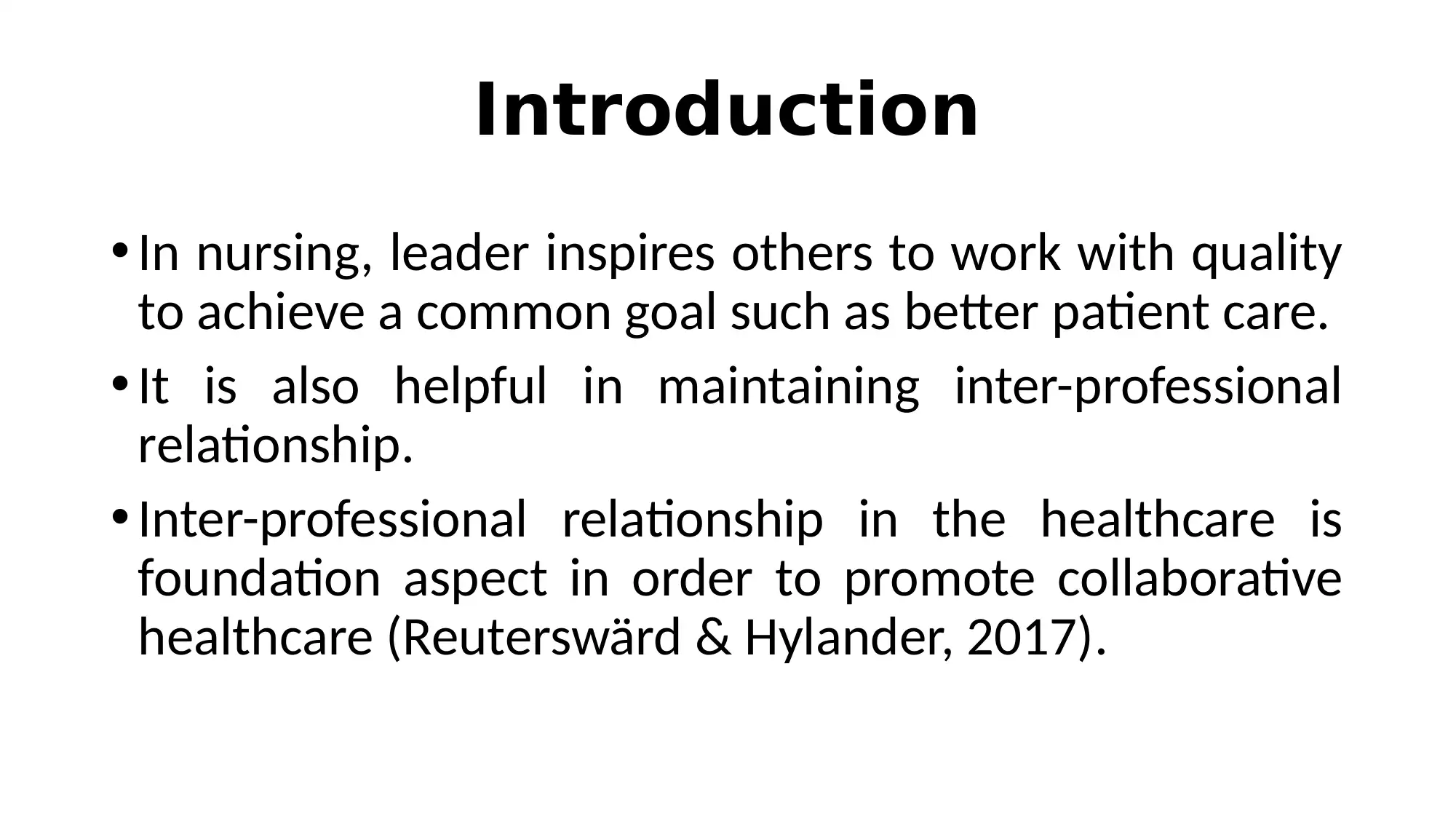
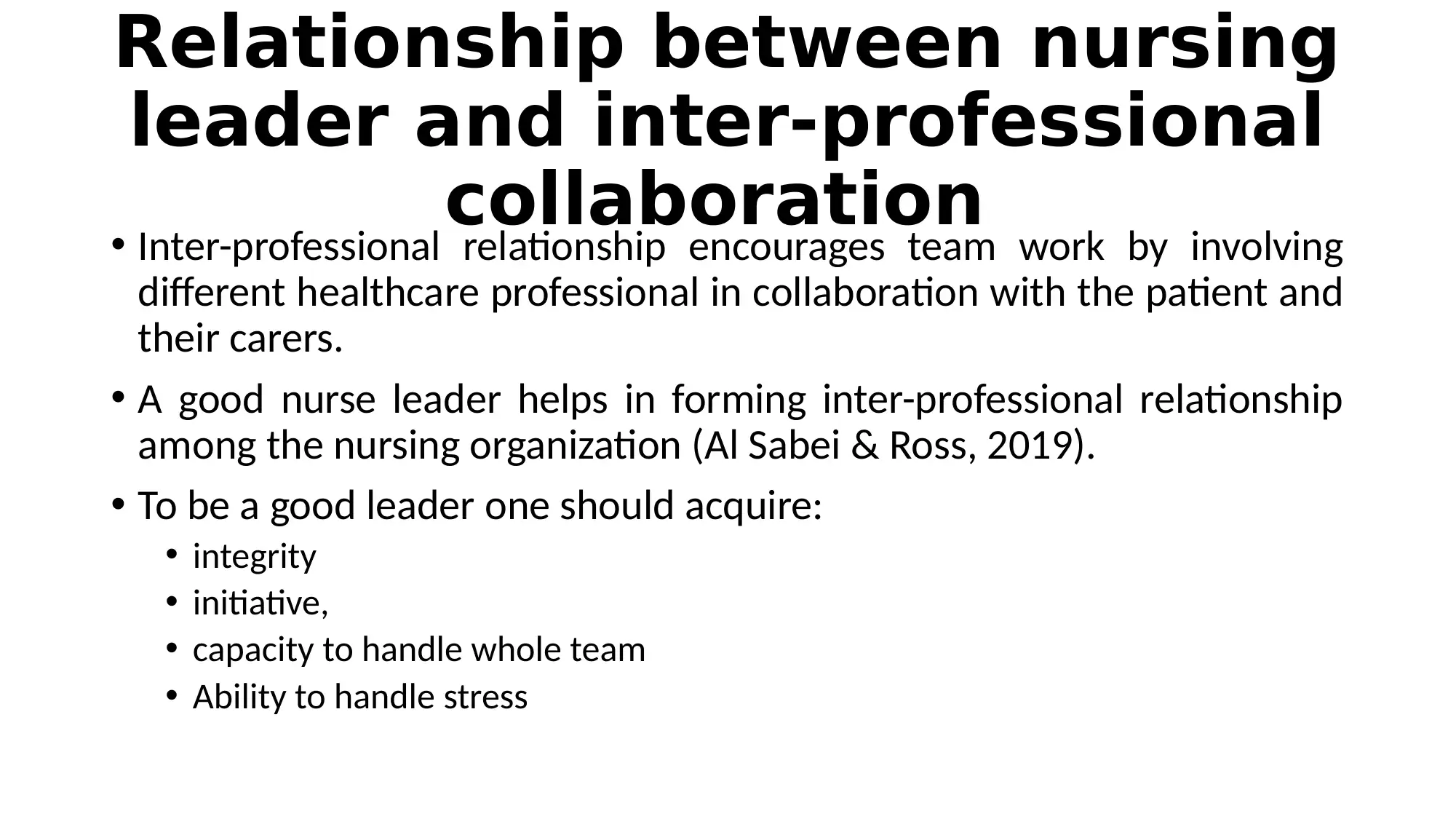

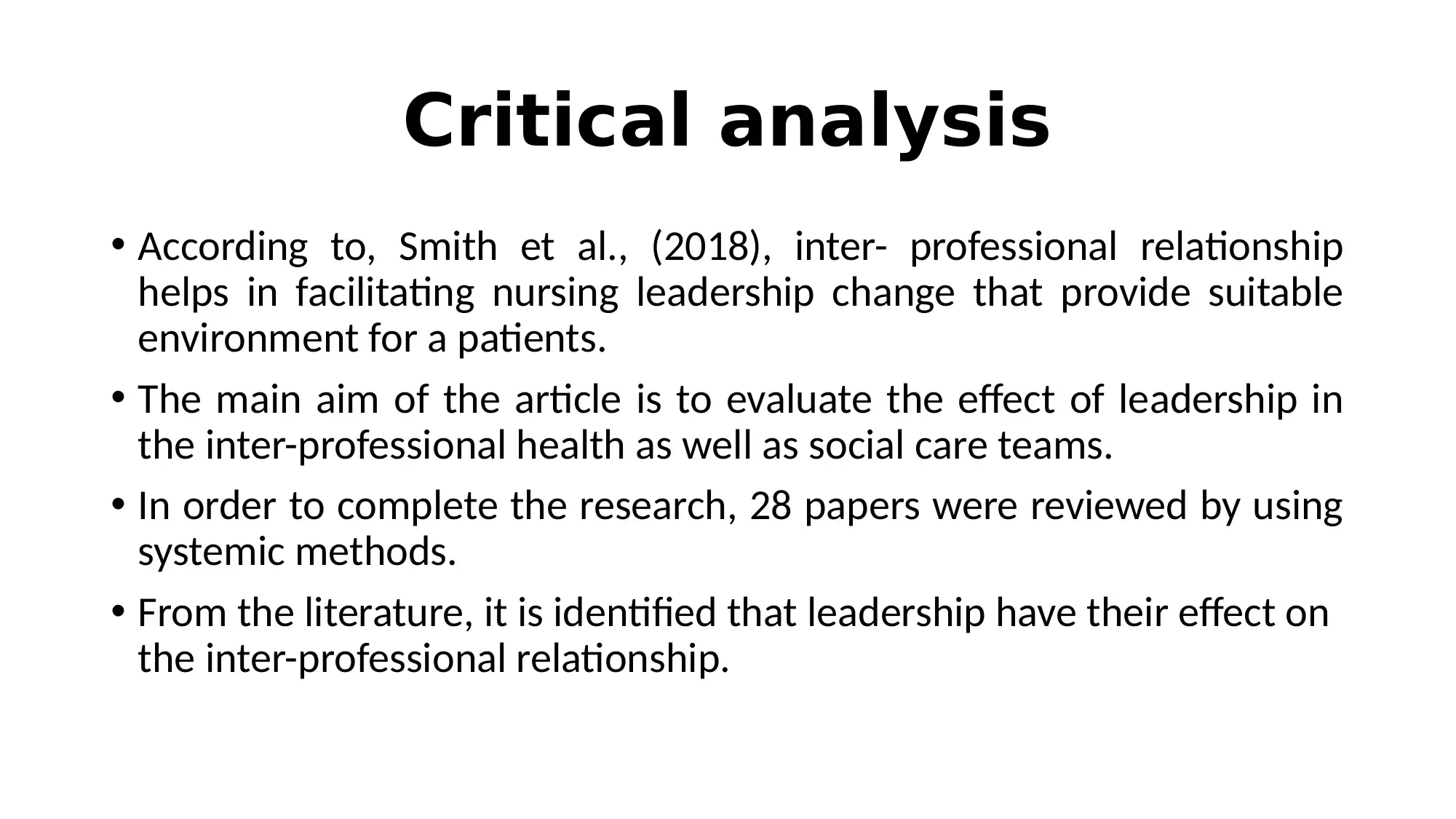
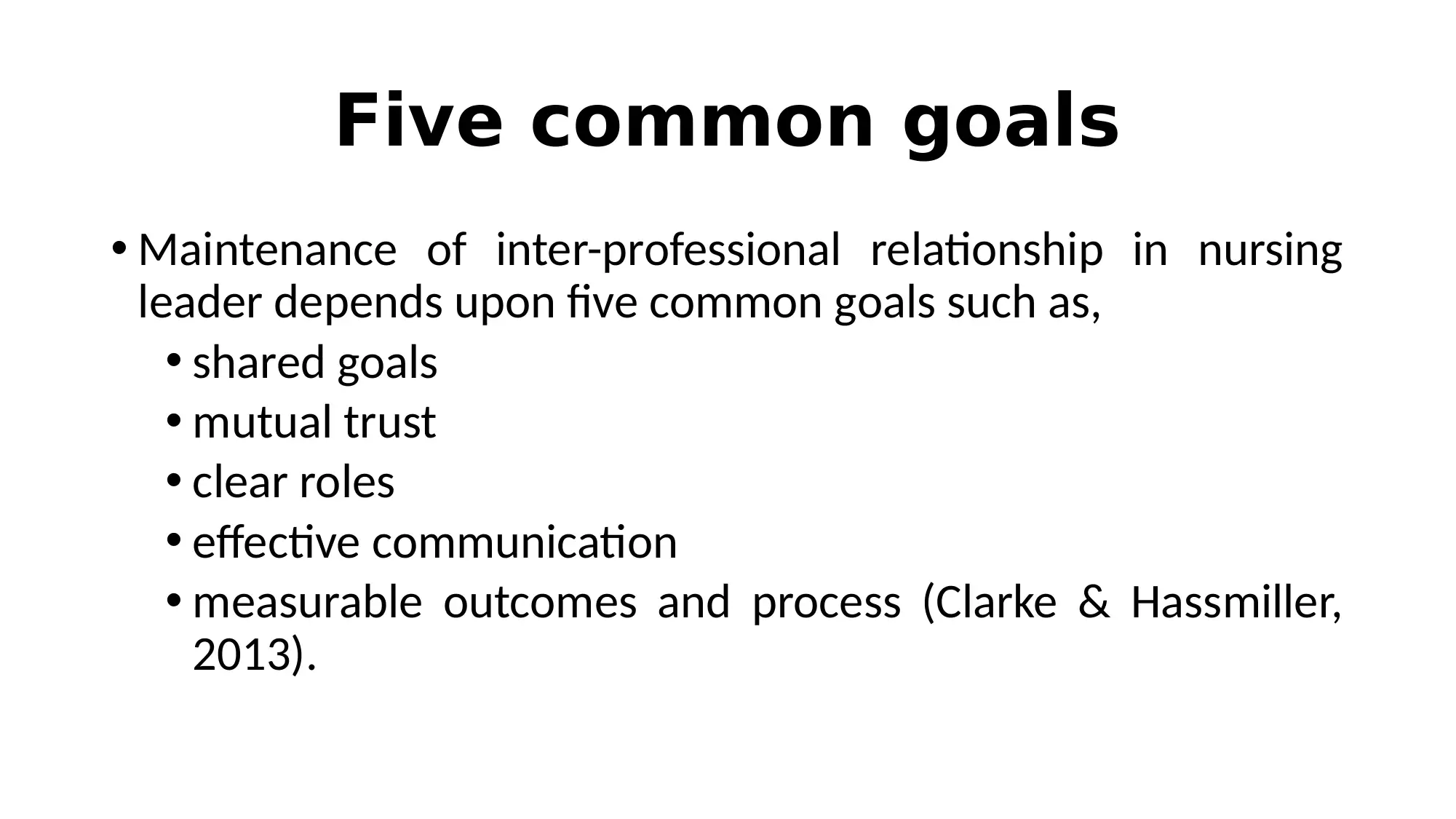
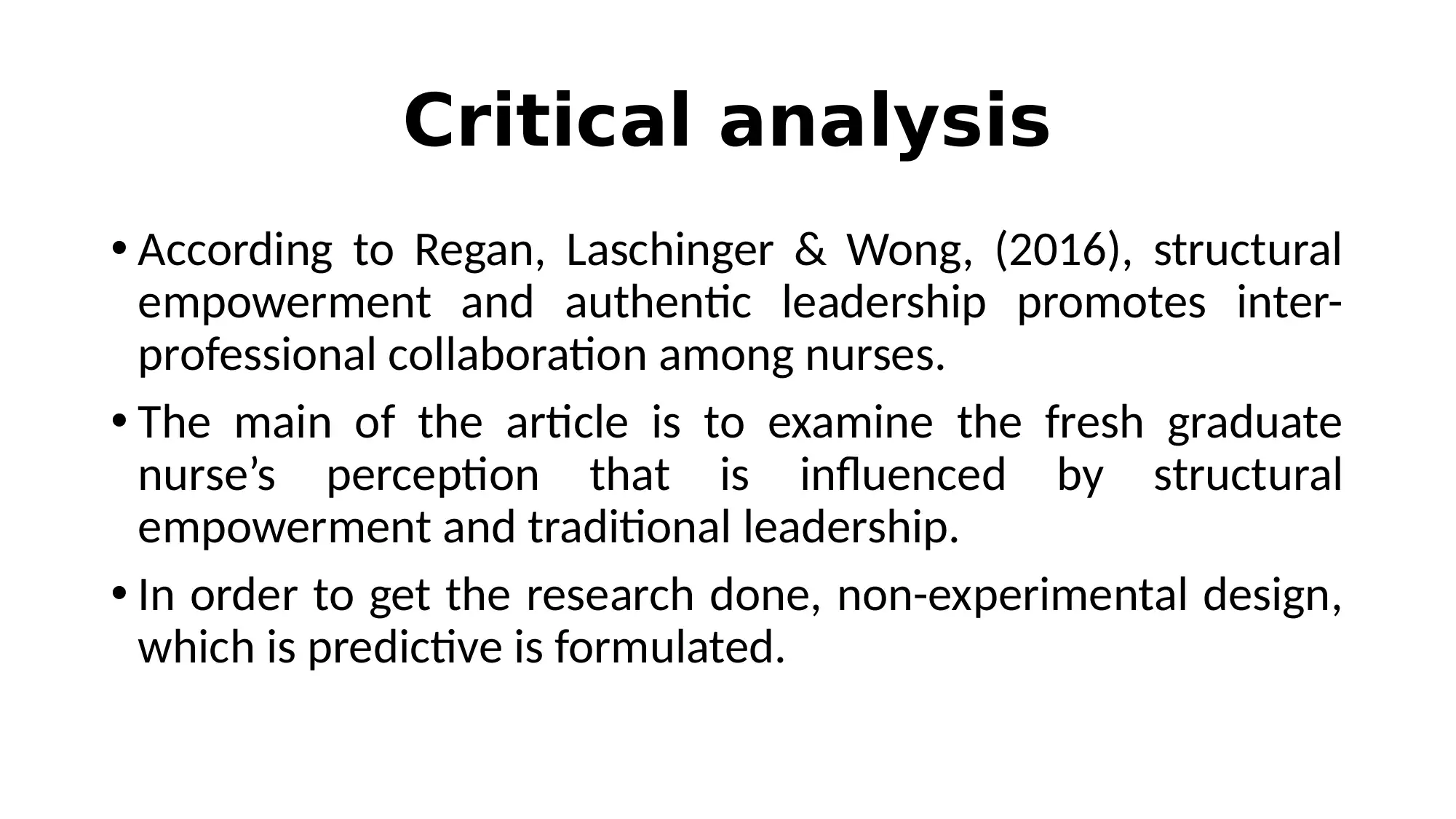
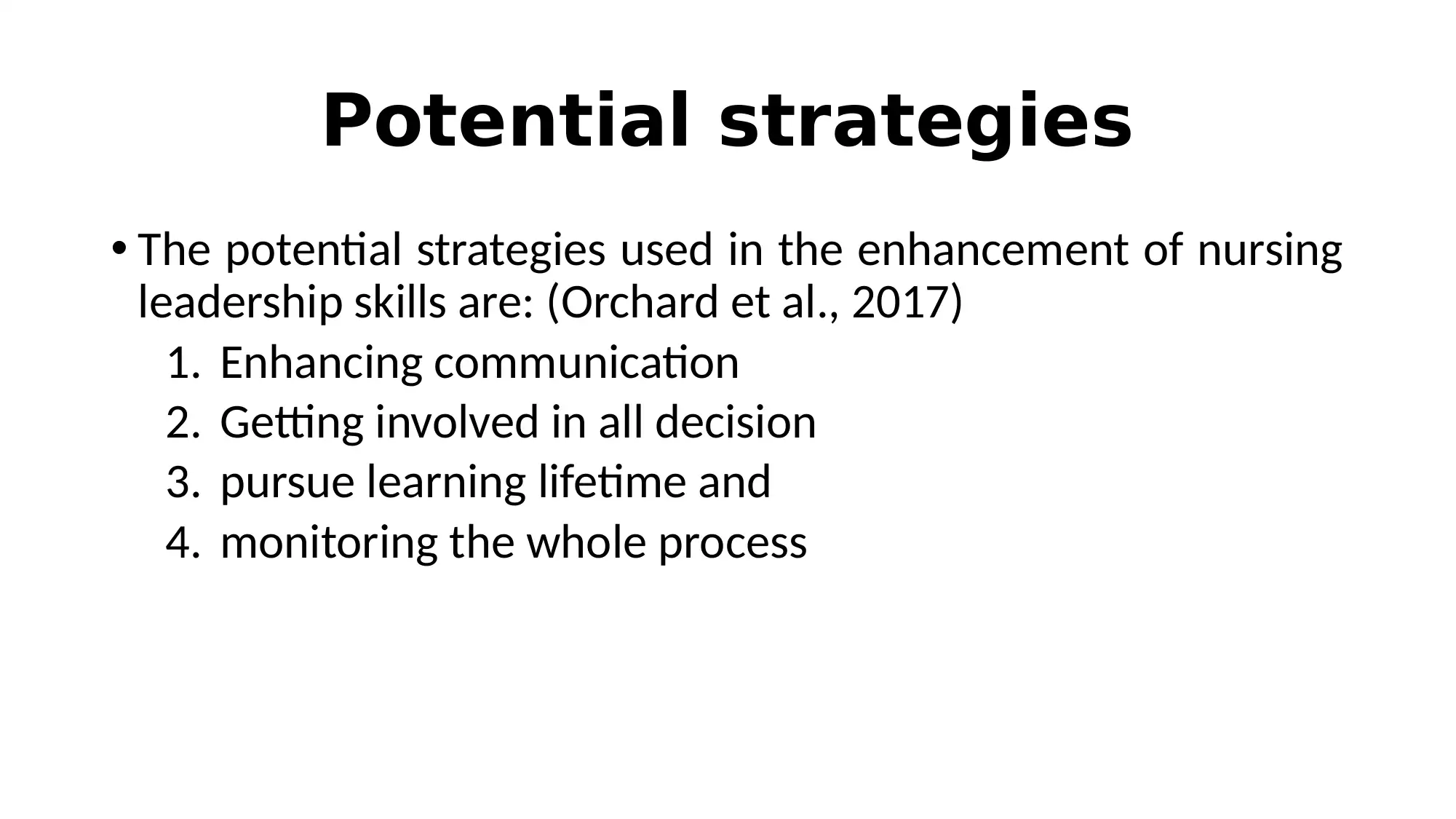
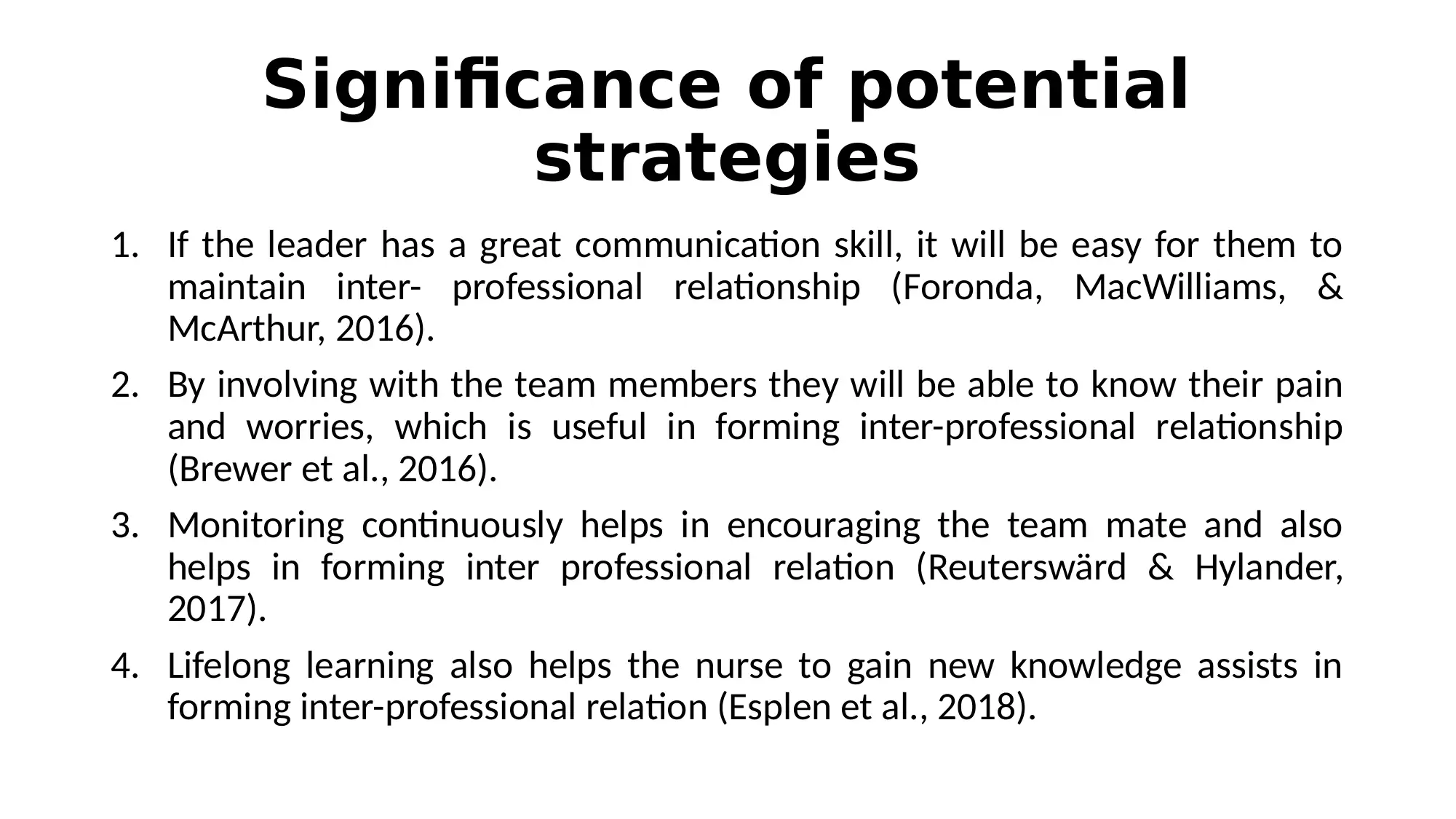
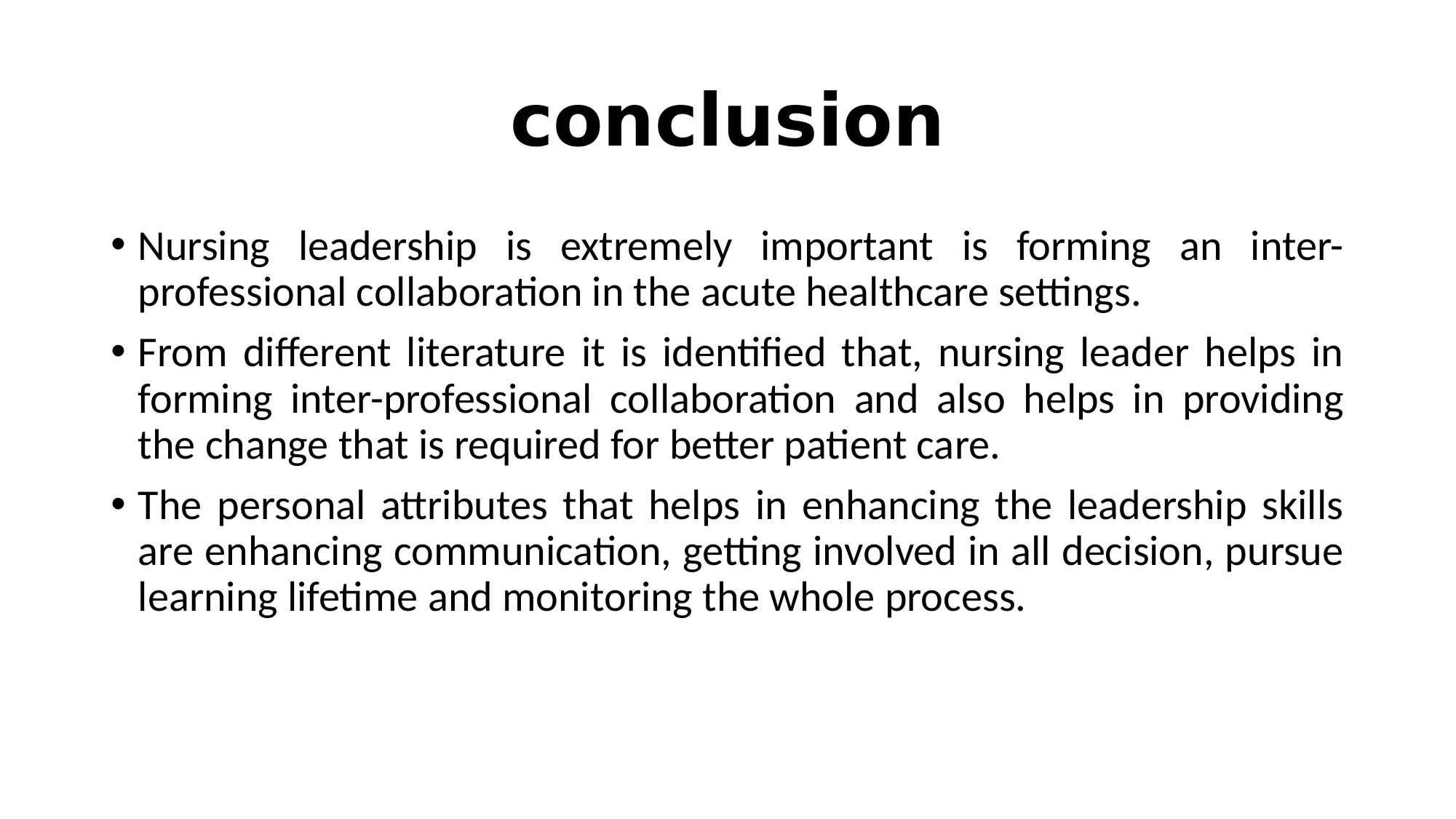
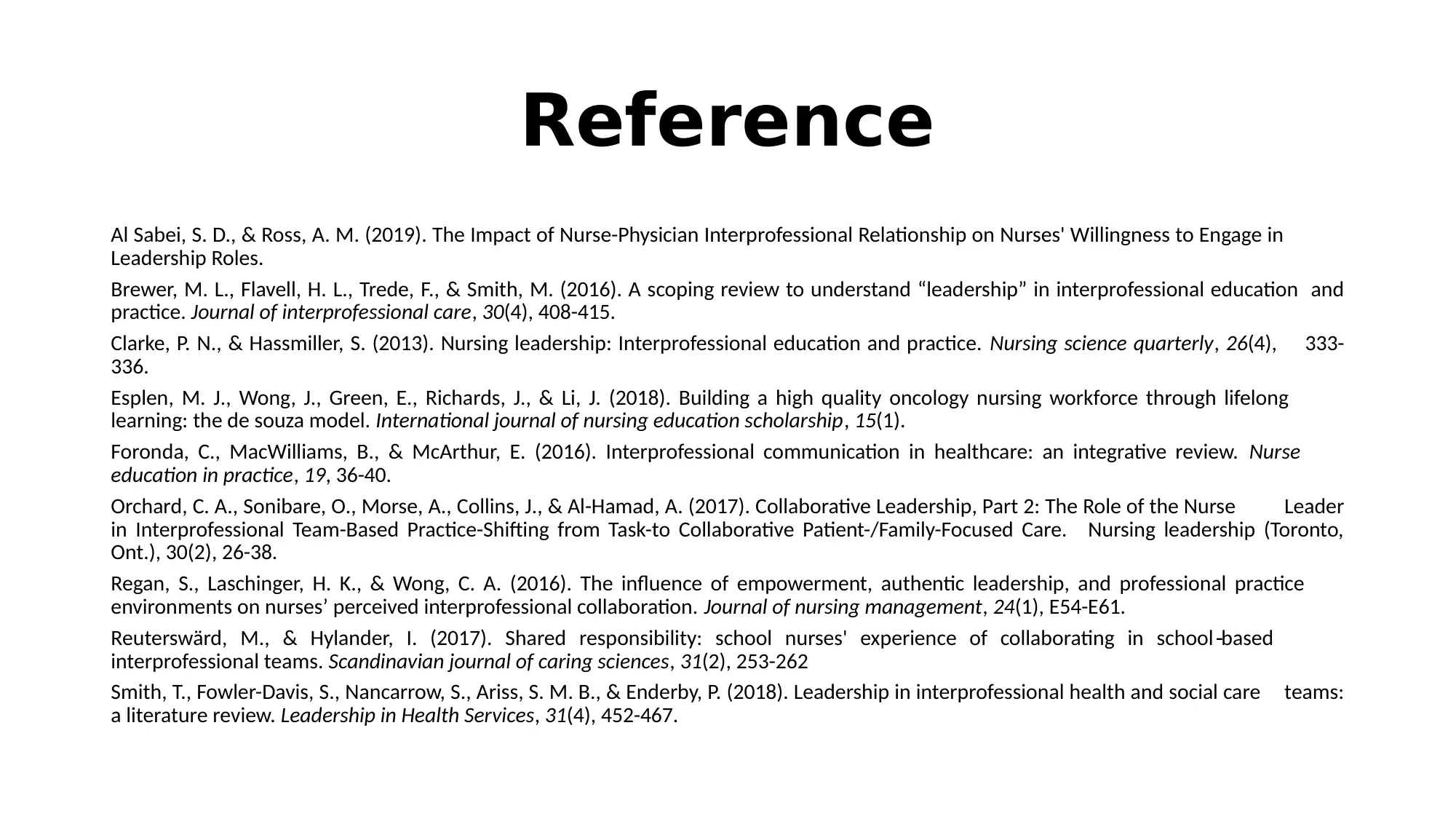







![[object Object]](/_next/static/media/star-bottom.7253800d.svg)